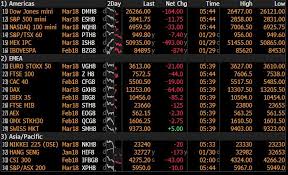A retreat in share prices finally reaches tech stocks

STOCKMARKET BOOMS tend to narrow with age, as investors double down on the shares that have served them well. Throughout 2017 and into the early weeks of this year, a handful of favoured technology stocks, known as FAANG (Facebook, Amazon, Apple, Netflix and Google, part of Alphabet), were the motor for a rapid rise in the S&P 500 index of American stocks (see chart). In this year’s choppier markets, they seemed like a refuge. But this week FAANG and other tech stocks were at the centre of a broader sell-off in global stockmarkets.
Over two trading days, on November 19th and 20th, the FAANG stocks retreated further from the peaks they each achieved earlier this year. At their lowest point all five were down by more than 20% from their pinnacle. Billions of dollars in stockmarket value have evaporated. Apple, which had reached an equity capitalisation of $ 1trn in early August, was valued at $ 840bn by the time New York’s stockmarket closed on November 20th. The market capitalisation of Amazon, which fleetingly hit the $ 1trn mark a month later, had dwindled to $ 731bn.
The rout in technology stocks was part of a broader retreat in share prices. The S&P index is now barely up over the year. The world’s other big stockmarkets are deep in the red, with China’s worst-hit, down by a fifth since January 1st. Specific factors weigh on the prices of tech shares, such as new concerns about rising capacity in chipmaking. But it would be closer to the mark to say that the anxieties that have undermined the rest of the stockmarket, such as signs of weaker global GDP growth and the trade war between America and China, have caught up with tech.
There were early tremors last month when a clutch of semiconductor firms endured a rout in share prices. The pattern was repeated when third-quarter results from Nvidia, which makes chips used in digital gaming, fell short of expectations. Its share price plunged. That in turn gave form to latent doubts about the outlook for Apple. Reports that its suppliers were cutting output were enough to send Apple’s share price down by 8.6% over two days. As the economy slows, goes the reasoning, people will be slower to upgrade their handsets. Similarly, businesses would delay non-essential spending, such as advertising, the source of revenue for Google and Facebook. So their shares fell, too.
America’s trade dispute with China can only amplify such concerns. A statement this week by China’s trustbusters that it had evidence of price-fixing by the three largest makers of DRAM chips, used in computers and smartphones, is a new focus for tech jitters. The move was seen by some as a warning shot in the trade wars. Two of the firms are South Korean, but one of them, Micron Technology, is American.
For the FAANG group of stocks, gravity is also at work. So spectacular was their rise that they were bound to fall back sooner or later. Nobody could be sure precisely when or why. But the hopes of many investors that they would be invulnerable to worries about the economy have been dashed. America’s GDP growth seems destined to slow next year as the impetus from tax cuts fades and the Fed’s rate rises bite harder. If anxieties about the world economy are to be assuaged, signs of more solid growth in other parts of the world are needed. A lot now depends on how the tug-of-war in China between policy stimulus and the drag from American tariffs plays out.
This article appeared in the Finance and economics section of the print edition under the headline “No exception”
